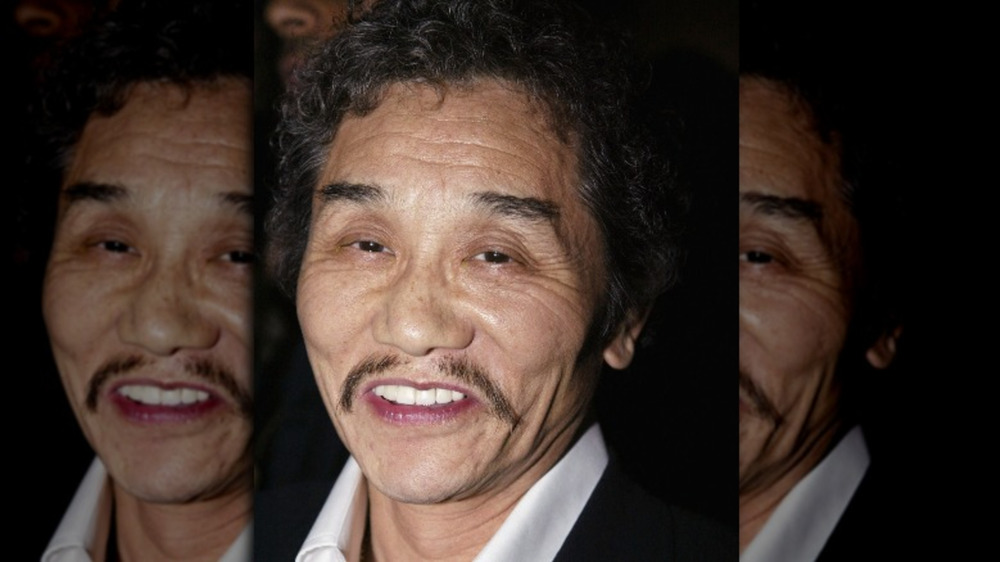How The Benihana Founder Earned The Money To Start His Restaurant
Hiroaki "Rocky" Aoki, the founder of Benihana, came to America in 1959 on a wrestling scholarship. A remarkably accomplished wrestler, the young Aoki had secured an alternate spot on the Japanese Olympic wrestling team by the time he was 22. He then enrolled in Springfield College in Springfield, Massachusetts on an athletic scholarship, before transferring to C.W. Post College in Long Island, where he remained until he was expelled for fighting with classmates, per Encyclopedia. Instead of returning home to Japan, he moved to New York, where he began studying restaurant management at New York City Technical College, despite not knowing how to cook.
In the early 1960s, New York City had a high crime rate, and many parts of the city, like Harlem, were considered dangerous. But where others saw potential risk, Aoki saw opportunity. "Everybody afraid to sell ice-cream in Harlem then," Aoki recalled to New York Magazine in 2006.
Aoki made $10,000 driving a Mister Softee ice cream truck in Harlem
Aoki realized he would have a monopoly on the neighborhood, so he began selling Mister Softee ice cream with a Japanese touch, adding a little paper umbrella and playing traditional Japanese music from the back of his ice cream truck, per One37pm. To discourage potential troublemakers and thieves, he also taped a newspaper article detailing his numerous AAAU wrestling championship wins to the side of his truck.
Soon, people were lining up down the block to purchase ice cream from the only truck in Harlem, and after the summer of 1963, Aoki had earned $10,000 from ice cream sales. He now had enough cash to convince his father, a former performer, that they should go into business together. With his 10 grand and an additional investment from his father, they purchased a tiny four-top restaurant in Midtown Manhattan. Staffed exclusively with family members, the teppanyaki-style restaurant lost money for six months, until a rave review from the New York Herald Tribune brought the restaurant to the attention of customers, celebrities, and other media outlets. Benihana became a runaway success, and the rest is history.

